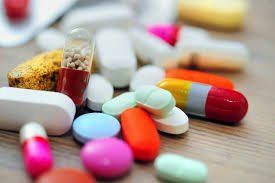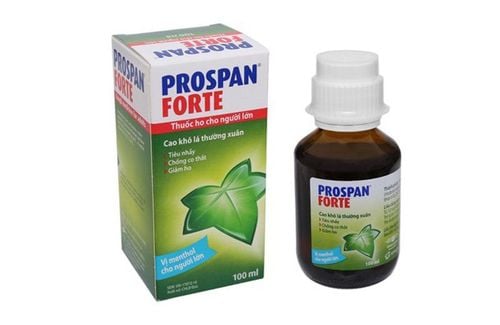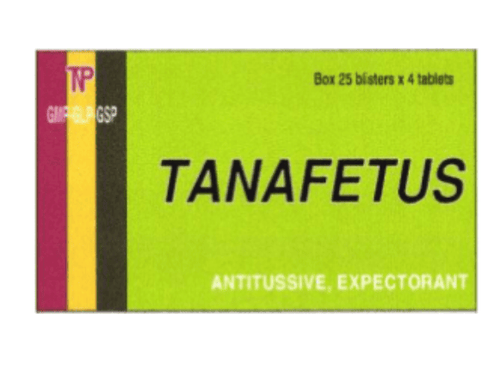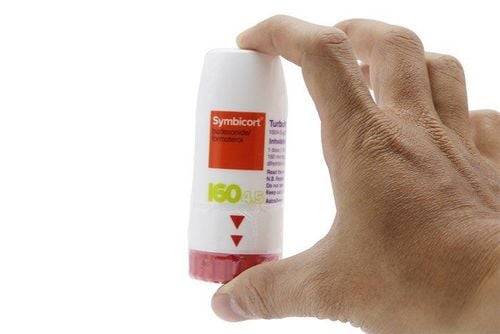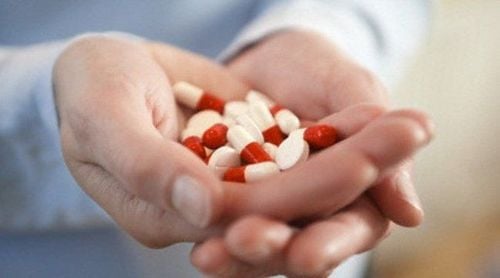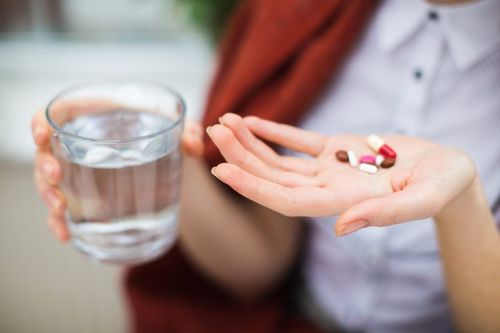This is an automatically translated article.
Cold is one of the most common viral illnesses in children. The disease makes children uncomfortable, reducing their ability to learn and move. If not cared for well, complications such as flu, pneumonia... So what should children do with a cold?
1. What is a cold?
There are more than 200 viruses that cause colds but the main culprit is rhinovirus. Antibiotics do not work for children, because colds are caused by viruses. Viral diseases cannot be treated with antibiotics. Colds occurring in otherwise healthy children are not cause for concern, except in immunocompromised infants or young children. What to do if a child has a cold? Colds last for 4 to 10 days and go away on their own without treatment.
Trắc nghiệm: Sự phát triển tinh thần, vận động của bé thế nào là đúng chuẩn?
Khi nào bé biết nói, biết hóng chuyện hay biết cầm cốc là "đúng chuẩn"? Điểm xem bạn biết được bao nhiêu mốc phát triển tinh thần, vận động "đúng chuẩn" của bé nhé!The following content is prepared under supervision of Thạc sĩ, Bác sĩ y khoa, Ma Văn Thấm , Nhi , Phòng khám Đa khoa Quốc tế Vinmec Dương Đông(Phú Quốc)
2. Children's expression when they have a cold
When a child has a cold, symptoms begin when the child is not feeling well, manifested by a sore throat, runny nose and cough. At first, a sore throat is caused by a build-up of mucus. After that, the sore throat subsides, nasal discharge is formed and fluid flows from the nose to the throat.
When a cold gets worse, your child may wake up with the following symptoms:
Runny nose Watery eyes Sneezing Feeling tired Fever (may be present) Sore throat Cough Viruses that cause colds can affect to the functioning of the sinuses, throat, bronchi and ears of the child. Colds can also cause diarrhea and vomiting in young children. During the early days of a cold, your child may be irritable and complain of headaches and irritability. Later, when the mucus in the nose thickens, the child will feel more comfortable.
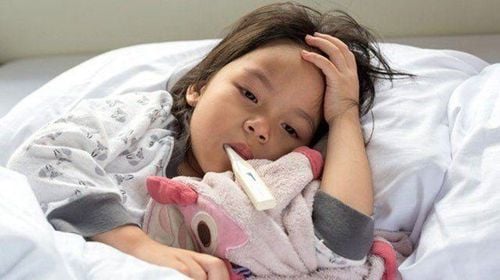
Distinguishing Covid 19 from flu and cold
3. How many colds can a child get in a year?
Babies and toddlers can have 8 to 10 colds in a year until they are 2 years old. Children of preschool age usually get 9 colds a year. Whereas preschoolers can get 12 colds a year. Teenagers and adults 2 to 4 times a year.
Cold season usually lasts from September to March - April, so children get cold most often during these months.
4. How can children get colds less often?
Children can easily catch colds by touching objects that have been touched by a person with a cold before. Some common cold virus-contaminated items are doorknobs, stair railings, books, pens, electronic controls, and computer keyboards. Cold viruses can live on these items for several hours. So what to do when your child has a cold?
Hand washing is the best way to prevent colds. Parents should teach children the habit of washing hands when going to the toilet, before every meal at home or at school. Time to wash hands with clean water and soap must be enough for 20 seconds or more to have a bactericidal effect. Ask your child to sing “happy birthday” twice to make sure they have washed their hands enough time. Using hand sanitizer is also a good way to prevent bacteria from spreading.
If your child has a cold, be sure not to spread it to others. If your child has cold symptoms, keep them at home and avoid contact with other children.
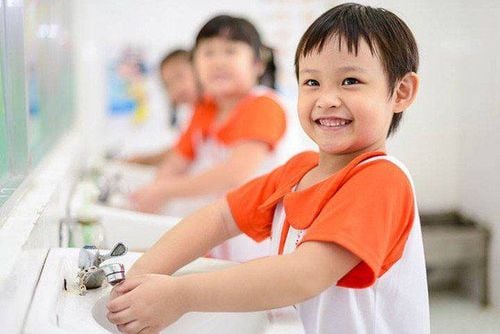
5. How to cure a child's cold?
5.1 Are cold medicines safe for kids? The FDA and drug manufacturers advise that parents should not buy over-the-counter cough and cold medicines for children younger than 4 years of age. Those medications include:
Cough suppressants (dextromethorphan or DM) Cough medicine (guaifenesin) Decongestants (pseudoephedrine and phenylephrine) Antihistamines (such as brompheniramine, chlorpheniramine maleate, diphenhydramine, and others) Children in general cough medicine should not be used. Coughing is a natural response to clear the cold virus from the body. Parents should let children cough, unless symptoms become severe. You do not need to worry too much about how to get rid of a cold quickly because your baby's body is capable of producing antibodies against this common virus.
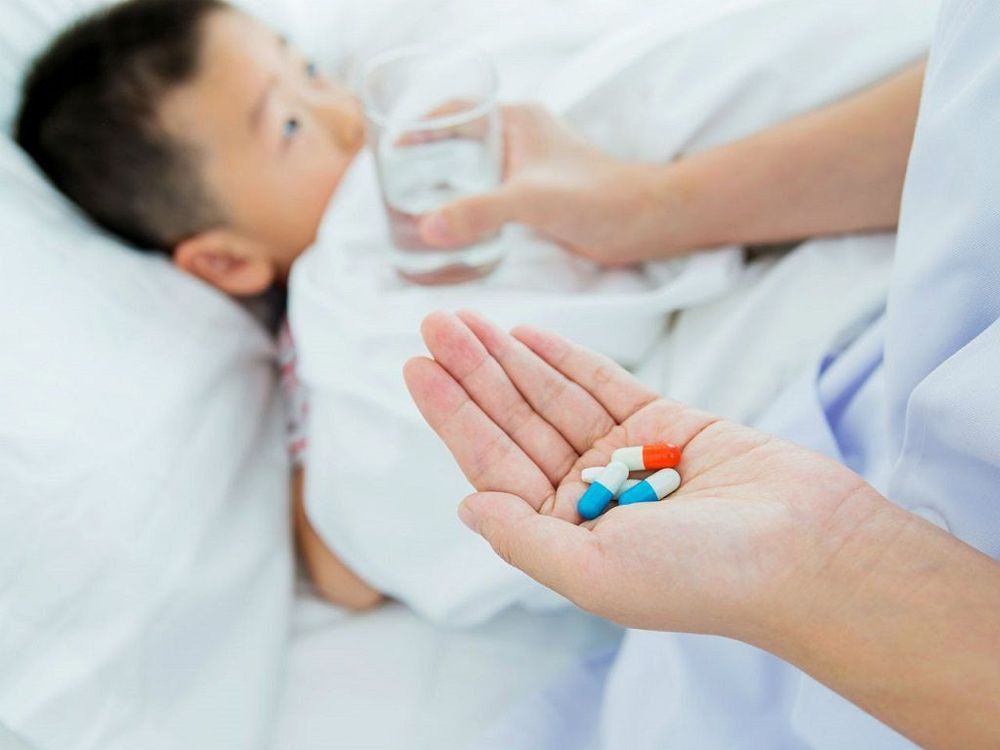
If your child has asthma, diabetes or other chronic diseases, see your pediatrician for advice on the right medication.
Parents should also watch for flu complications such as pneumonia. Symptoms include a low-grade fever (below 102 degrees Fahrenheit), coughing up mucus, aches and pains, shortness of breath or rapid breathing, and fatigue. Contact your pediatrician immediately if any of these symptoms appear.
6. What to do to relieve cold symptoms without using medicine?
There is no scientific evidence to support the use of alternative medicine methods such as vitamin C, echinacea, and zinc in the treatment of colds. But there are a few suggestions that can help your child become more comfortable:Stay hydrated: Give your child plenty of water and liquid foods to stay hydrated. Drink coconut water, an electrolyte-enhancing drink. Limit the intake of fruit juices and carbonated water; Cough relief: Lemon and mint work to reduce discomfort in the throat; Bed rest: If the child feels tired, let the child rest in bed;
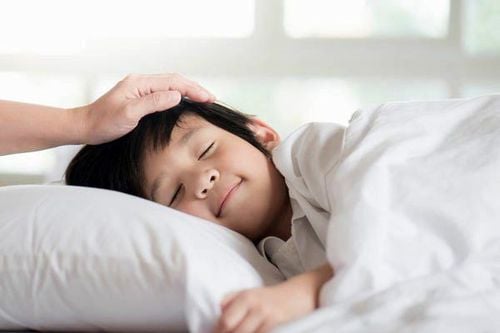
Steam: Parents should mist the room with a steam generator. Any steam generator can harbor mold, so be sure to thoroughly clean the units before each use; Baby bath with warm water; Apply oil under your child's nose to soothe dry skin. The common cold will go away on its own without treatment. However, if the baby shows symptoms of respiratory failure, extreme fatigue or has a history of asthma or chronic diseases, parents should take the baby to a medical facility. Moreover, a cold is often confused with the flu, and if not treated properly and promptly, it will cause many serious complications for the baby.
You can take your baby to Vinmec's Pediatric Department to be examined by specialist doctors. A team of specialists in respiratory, neurological, cardiovascular, digestive, nutrition... are all available at the Pediatric Department, so you won't have to take your baby to many departments, saving time, increasing effective treatment and reduce costs. The doctors are highly qualified and experienced, so they will have an accurate diagnosis between flu and cold and effective treatment.
If you have a need to examine your baby at Vinmec, please register directly at the website or contact the hotline system for detailed advice.
Please dial HOTLINE for more information or register for an appointment HERE. Download MyVinmec app to make appointments faster and to manage your bookings easily.
Reference source: webmd.com; stanfordchildrens.org; verywellhealth.com; kidshealth.orgRecommended video:
Things to know about colds
SEE ALSO:
Get well soon with 9 very simple cold treatment tips Cold, flu: When to see a doctor? 10 signs that distinguish the flu from a cold





